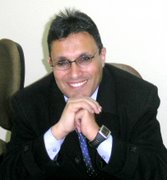
Georgian Literature, literature of the inhabitants of the country of Georgia. It is written in the Georgian language. The earliest work to survive, The Martyrdom of the Saint Shushanik (474-84), and the thousands of palimpsests of the 5th, 6th, and 7th centuries indicate that at least the Gospels, the Epistles of Saint Paul, and about 150 Psalms had been translated into Georgian during that period. Several Georgian translations of the complete Bible from the 8th and 9th centuries also survive.
The Golden Age of Georgian literature came under Queen Thamar, during whose rule (1184-1212) Georgia reached its political as well as its cultural peak. The best-known work is the secular The Man in the Tiger's Skin, by the late 12th-century poet Shotha Rusthaveli, the national epic of Georgia. Beginning in this period, Persian stories and myths became a strong literary influence. They were much evident in the writings of the royal poet King Theimuraz I and denounced by a later royal poet, King Archil. Persian influence remained strong until the rise of Georgian nationalism in the 18th century.
Among the important 18th-century writers were King Vakhtang and Sulkhan Saba Orbeliani, author of a collection of moral tales and of a Georgian dictionary as well as of poems and a journal of his extensive travels in Western Europe. Other writers include the poets David Guramishvili and Bessarion (Besiki) Gabashvili.
During the 19th century, Western European influence became strong. Among the poets were Alexander Chavchavadse and Grigol Orbeliani. Their poetry was noted for its patriotic themes and extravagant praise of wine and women. Nikoloz Baratashvili also showed European influence.
In the late 19th century the most influential Georgian man of letters was the patriotic Ilia Chavchavadse. From 1921 to 1991 Georgia was part of the Soviet Union. Much literature continued to be produced in the Georgian language, but it belonged to the cultural tradition of the USSR. In 1991, Georgia again became an independent nation.
Microsoft ® Encarta ® 2007. © 1993-2006 Microsoft Corporation. All rights reserved.
http://www.olemiss.edu/depts/south/register/94/page2.html
http://www.vakhmegeo.freehomepage.com/custom2.html


